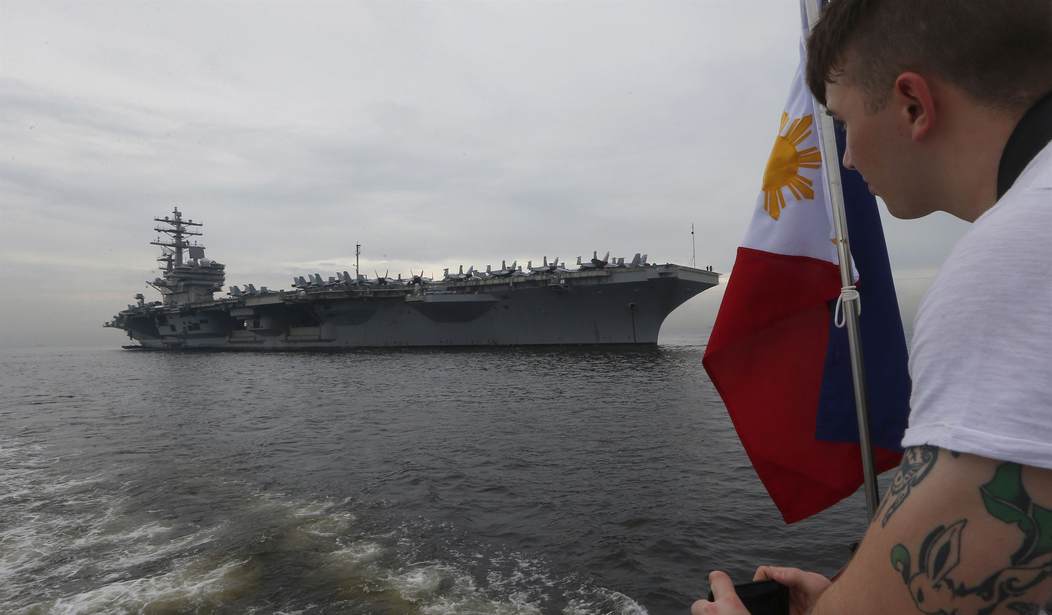We’re in the middle of Taiwan invasion season. As we continue to be distracted by Joe Biden’s incompetence, the crumbling economy, and post-season sports, China has ramped up its military presence against Taiwan. Recent military drills by Beijing have been large-scale and aggressive. The weather window regarding such an operation is open, though time is ticking for China to pull off what would be a massive gamble on Joe’s senility and our internal divisions. In the meantime, everyone in the region is preparing for a Sino-American War.
Taiwan’s defense policy is not to defeat China—they know their limitations—but to hold out long enough for the United States to arrive. Due to that lingering response, China has never had the confidence to spring such an attack, but they also see a point of weakness that may never come again. Okinawa serves as a primary base from which America could deploy its forces should hostilities break out, but the Philippines granted permission for the US to use its northern bases as well. Axios had a lengthy piece detailing what each major regional player is planning in case all hell breaks loose. Australia might also not serve as a significant resupply depot for US forces but be entrusted with securing supply lanes:
Philippines President Bongbong Marcos visited the White House today, shortly after the largest-ever version of annual U.S.-Philippines military drills. For the first time, the war games focused in part on securing the 7o-mile wide channel between the Philippines' northern islands and Taiwan.
As U.S. and Filipino forces rehearsed for potential conflict with China, Chinese Foreign Minister Qin Gang visited Manila and urged the Philippines — a U.S. treaty ally that moved closer to Beijing under Marcos' predecessor, Rodrigo Duterte — against "picking sides."
Earlier this year, Marcos granted the U.S. access to four new bases, three of which are in the north and face Taiwan.
[…]
Japan is widely seen by analysts as the most likely U.S. ally to contribute troops to defend Taiwan.
Japan's constitution limits its highly advanced military to self-defense, but some in Tokyo argue that an invasion of Taiwan would cross the threshold of endangering Japan’s survival.
While Japan is unlikely to explicitly commit to defending Taiwan, "there are ways to signal to Beijing that it can't assume Japan would remain on the sidelines," says David Sacks, a research fellow at the Council on Foreign Relations. Those include improving command and control systems and interoperability with the U.S. forces, he says.
[…]
Australia's geography would also make it a critical hub from which the U.S. could resupply its forces and launch operations.
"The role for Australia in a Taiwan contingency is highly unlikely to be at the front line in the Taiwan Strait," says Ashley Townshend, a senior fellow with the Carnegie Endowment based in Sydney.
But Canberra is deepening military ties with Washington and recently announced major investments in upgrading its northern military bases and in procuring nuclear submarines under the AUKUS framework.
In a Taiwan crisis, Australia would likely be responsible for securing sea lanes and tracking Chinese vessels across a wide geographic area, and might take on tasks like escorting U.S. bombers en route to the Taiwan Strait, Townshend says.
South Korea has also increased its military spending and cooperation with the U.S., and Korean officials have held discussions with the Pentagon about Taiwan-related contingencies. Still, Seoul's overwhelming focus remains on North Korea.
Recommended
The piece concludes with Townshend saying, “we’re all worried…[about] the whole region.”

























Join the conversation as a VIP Member